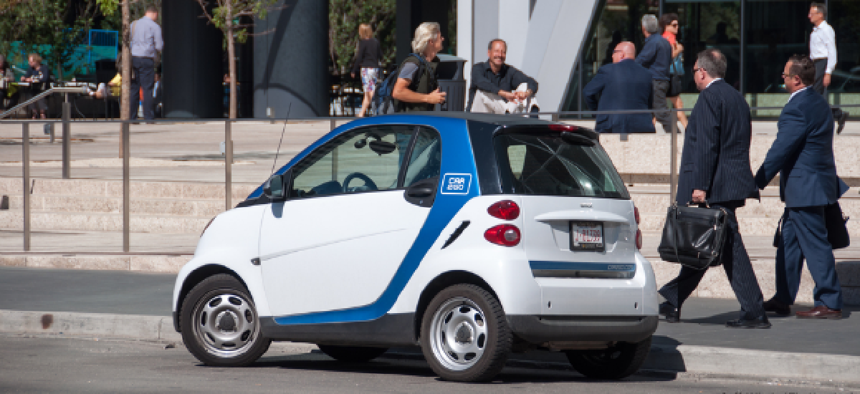GSA to test a Zipcar-like approach to car sharing


Connecting state and local government leaders
The General Services Administration explores using car-sharing network and services to cut fleet maintenance costs.
The General Services Administration is taking a first step in solving a financial and management problem that many large municipal governments already have in hand: the use of car-sharing services to cut down on the out-of-control costs of operating the government’s huge fleet of cars and trucks.
In a request for information, GSA said it wanted to explore the use of commercial car-sharing ventures to help manage the 200,000 vehicles it maintains. At the same time, the agency announced it would launch pilot programs in Washington, D.C., New York City, Boston and Chicago to see how car-sharing might work across “multi-federal agencies in large metropolitan cities.”
“GSA manages one of the largest federal fleets in the U.S. government,” said Tom Sharpe of GSA’s Federal Acquisition Services in an announcement. Under the “common sense” approach, GSA “will be able to test whether it is more cost-effective and beneficial to use a car-sharing service in lieu of taxi cabs, renting, leasing and/or purchasing a vehicle.”
The solution could help the federal government get a handle on managing its astronomical fleet. According to the 2012 “Federal Fleet Report,” the costs of the government fleet was $4.3 billion in 2012. Total mileage: 2.5 billion miles.
Major metropolitan city governments are already well out ahead of federal agencies in using car-sharing services and technology. New York City recently announced a fleet consolidation it expects will help it save $415 million by 2016. The Big Apple will also take advantage of the commercial Zipcar service to help reduce the size of its 25,000 vehicle fleet.
“Not only are we using Zipcars, which reduce the number of cars we have to have, we are going to use their technology to manage the cars we do have,” said New York City Mayor Michael Bloomberg.
The plan calls for vehicles in the city fleet to be equipped with Zipcar’s “Fast Fleet” services, which links a vehicle to a car-sharing network that is accessible on the Web.
“So you, as a city employee, normally entitled to a car aren't going to get a car anymore,” Bloomberg said. “You go on a computer, they tell you where to pick it up and you'll have your key and it will only work for you at that point in time. That saves a tremendous amount of money.”
The Cook County, Ill., government also is forming an alliance with Zipcar under which existing county cars and trucks would be managed using the company’s car-sharing network. County employees would get a discount when using Zipcars in the Chicago area.
Meanwhile, the city of Houston is tapping a partnership with Zipcar to operate a shared motor pool. City cars would also be outfitted with Zipcar’s FleetShare vehicle management network and Web services.




